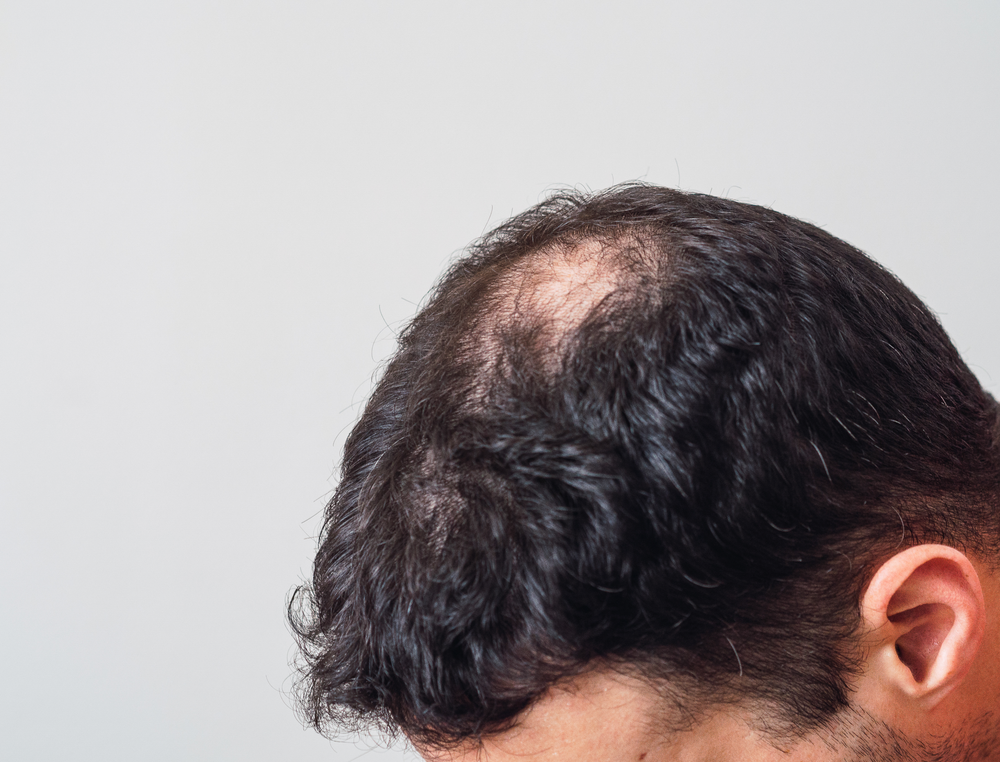Phenylalanine, or L-phenylalanine, is one of several amino acids used in Divi’s Scalp Serum, Shampoo & Conditioner. Keep reading to find out what phenylalanine does and why this little-known amino acid is becoming a popular ingredient in hair and scalp products designed to promote hair strength and boost overall growth.
What Is Phenylalanine?
Before we explore phenylalanine’s growth-promoting benefits, let’s get a bit of background on this amino acid’s properties.
Phenylalanine is an aromatic amino acid. Despite what the name suggests, this has nothing to do with smell. In chemistry, the word “aromatic” describes any compound featuring rings of atoms held together with two or more different kinds of covalent bonds.
Phenylalanine is a non-polar amino acid with hydrophobic properties (it repels water). This hydrophobic quality is the reason phenylalanine is usually found toward the center of protein structures rather than on the outer surface. Its role within structural proteins is primarily stabilization, meaning it helps bind amino acids together and maintain the overall strength and integrity of the protein.
Keep these properties in mind, as they’ll be relevant to some of the ways in which Divi’s scalp care range can improve the condition of your scalp and possibly promote hair growth. We’ll discuss these mechanisms a little later.
Types of Phenylalanine
There are three different forms of phenylalanine:
- L-phenylalanine (used in Divi’s products) – This is an essential amino acid, which means the body cannot synthesize it. Dietary L-phenylalanine can be found in meat, eggs, dairy and certain plants. It can also be made in a lab.
- D-phenylalanine – This form of phenylalanine is not essential. Less is known about its function. However, we do know D-phenylalanine has stronger pain-relieving properties than other forms of the amino acid.
- DL-phenylalanine – This form of phenylalanine is made in a clean laboratory environment and shares similar properties with both D-phenylalanine and L-phenylalanine.
Phenylalanine’s Role in the Body
So, what does phenylalanine actually do? Like all other amino acids, phenylalanine serves various functions in the human body. It plays an important role in the formation of structural proteins in the skin and hair, and has been implicated as a possible treatment for several skin conditions, including vitiligo (loss of skin pigmentation).
Phenylalanine’s most important function is to help the body synthesize other molecules it can’t absorb through food. These molecules include hormones and neurotransmitters like thyroxine, dopamine and norepinephrine. Phenylalanine is also vital for the synthesis of another amino acid called l-tyrosine, which human beings can’t get enough of through diet alone. It’s via tyrosine synthesis that phenylalanine exerts many of its exciting hair-growth and scalp-health benefits.
Phenylalanine and protein synthesis
Phenylalanine aids in the creation of the structural proteins making up all the body’s tissues. Protein synthesis is essential to hair growth, as human hair is made up of around 95% protein. Without the right amino acid building blocks, the hair follicles in your scalp simply won’t be able to form proteins fast enough to grow new, healthy hair.
Keratin is the main, fibrous protein in hair; it’s made up of no less than 18 different amino acids, including phenylalanine. Keratin produced at the hair’s root is made from amino acids consumed via the food we eat. Supporting the diet with an amino acid supplement is a great way to boost your intake of phenylalanine and the other amino acids necessary for this virgin hair formation.
Reinforcing Hair Protein to Boost Length
Your hair follicles are responsible for producing strong, healthy roots and thick hair at the base of the hair’s shaft. Unfortunately, the protein produced at this level can’t do anything to reinforce strength and prevent breakage further along the hair shaft. This is where Divi’s Scalp Serum, Shampoo & Conditioner come in: topical amino acids and proteins can bind to the hair shaft and improve strength.
The phenylalanine and other amino acids (threonine, serine, histidine, glycine, proline, valine, arginine, aspartic acid, and isoleucine) contained in your Divi’s Scalp Serum, Shampoo & Conditioner can help hair grow longer and faster by intermittently re-supplying it with essential protein building blocks. These nutrients can bond to the outer surface of the hair, forming a protective shield to improve strength and elasticity. Your hair won’t technically be growing any faster, but it might seem this way due to dramatically reduced breakage.

Nourishing Hair Follicles
Divi’s amino acid-rich scalp products may also support hair growth by nourishing the scalp and providing the building blocks necessary to synthesize collagen, which is one of the main proteins in hair follicles.
These protein-synthesizing mechanisms may boost hair growth in people with a relatively normal hair growth rate. Upregulating protein production won’t do much to improve hair growth or treat hair loss in people with alopecia caused by underlying health or genetic conditions. However, there are other mechanisms by which our phenylalanine-rich hair care products may be able to help in these circumstances.
Tyrosine-Related Mechanisms for Growth
As we mentioned above, one of phenylalanine’s most important functions is to create tyrosine, a non-essential amino acid capable of supporting hair growth in several ways. Tyrosine is chemically identical to phenylalanine with the addition of one extra hydrogen atom and one extra oxygen atom. Science shows us that most of the tyrosine human beings produce is made in the liver. However, that’s not to say topically introduced phenylalanine (like the kind in Divi’s products) can’t be used for tyrosine synthesis.
Studies prove amino acids applied to the skin or scalp in personal care products can penetrate the skin and, in many cases, enter the bloodstream. This means the amino acids in Divi’s Scalp Serum could support the synthesis of proteins and non-essential amino acids throughout the body. While more research is needed, it’s safe to say eating more phenylalanine-rich foods is currently the surest way to boost tyrosine production if you’re looking to take full advantage of this amino acid’s benefits.
Can Phenylalanine Help with Autoimmune Hair Loss?
The outlook is positive. Brace yourself for a complicated explanation, though.
Research indicates tyrosine (an amino acid formed from phenylalanine) can effectively treat alopecia areata and other types of autoimmune hair loss.
Autoimmunity refers to any condition in which the body’s immune system becomes overactive and loses the ability to distinguish between harmless cells and dangerous foreign invaders. Any of the body’s cells can come under fire from an immune system attack when this happens. In alopecia areata, it’s the hair follicles on the scalp which are affected. This type of alopecia typically loses hair in small, circular, evenly distributed areas.
Though there isn’t a cure for this condition, people with autoimmune alopecia may be able to regrow their hair with the right internal and topical treatments. Scientists have shown that the amino acid l-tyrosine is especially helpful in treating autoimmune conditions affecting the scalp, as it boosts immunomodulatory peptides in the skin. These peptides downregulate inflammation in the skin and scalp, helping restore function to hair follicles and begin the regrowth process. Serums, conditioners, and shampoos like Divi’s might help stimulate this regrowth process as part of a comprehensive treatment plan, as they contain tyrosine’s precursor, phenylalanine.
Can Phenylalanine Help Hair Loss Caused by Thyroid Dysfunction?
Hair thinning and hair loss is sometimes associated with thyroid conditions, like hypothyroidism (underactive thyroid) and hyperthyroidism (overactive thyroid). Unlike autoimmune alopecia, hair loss related to thyroid dysfunction is caused by changes to the hair’s normal growth cycle.
In people who suffer from thyroid problems, hair loss and hair thinning typically occur across the entire scalp, and patches of baldness are rare. Tyrosine and its precursor phenylalanine can be useful in the treatment of thyroid diseases, as they help to create a thyroid-regulating hormone called thyroxine (T4).
For this reason, shampoos, conditioners, and serums which contain phenylalanine (like Divi’s scalp products) are popular among people who suffer from thyroid-related hair thinning. With regular use, and in conjunction with a wider treatment plan, Divi’s products may help restore the hair’s normal growth cycle and prevent premature shedding. Over time, this can lead to thicker, stronger and healthier hair.
Can Phenylalanine Help Hair Loss Caused by Nervous System Disorders?
Certain disorders of the nervous system can lead to hair loss. This can occur when growth-regulating signals are distorted, leading to slow growth, thinned hair or premature shedding.
Tyrosine and its precursor, phenylalanine, are possible treatments for this type of hair loss by enabling proper growth signaling in the scalp and hair follicles. This is true of dietary tyrosine and may be true of products containing the amino acid’s precursor, phenylalanine.
Supporting Hair Growth by Improving Strength
Phenylalanine can help hair regain its natural water-repellent (hydrophobic) quality when applied to the hair in a serum, shampoo, or conditioner. The amino acids in Divi’s products fill in gaps on the hair's outer surface caused by environmental damage – keeping essential moisture in and harmful chemicals out.
Hydrophobic hair is healthy, strong hair, which is less prone to breakage. As a bonus, increasing your hair’s hydrophobicity will leave it shinier.
Amino Acids Stimulate Hair Follicles
Serums, shampoos and conditioners containing amino acids like phenylalanine could speed up hair growth by stimulating hair follicles. They achieve this feature by improving energy pathways, ensuring a sufficient supply of nutrients, and, in phenylalanine’s case, improving blood circulation and oxygen supply to the scalp.
Every cell in your body requires oxygen to function properly, and the cells in your hair follicles are no exception. By boosting the supply of oxygen-rich blood to the hair follicles, Divi’s scalp care products may be able to increase the rate at which your scalp produces new hair.
Phenylalanine and Tyrosine Enhance Hair Color
This benefit isn’t technically related to hair growth but it’s definitely worth mentioning. Phenylalanine and tyrosine aid in the production of melanin, the pigment which gives your skin and hair their color. For this reason, hair and scalp care products containing phenylalanine can improve your hair's overall color and vibrancy when used regularly.
People with autoimmune alopecia or hair loss due to thyroid dysfunction often find the color of their hair is also adversely affected. Using leave-in products which contain phenylalanine – like Divi’s Scalp Serum – can help to reverse this effect by resupplying the hair’s follicles with melanin.
Preventing Premature Grays
Some health conditions associated with hair loss (like those mentioned above) have been linked to premature graying. Graying occurs when a hair follicle stops utilizing melanin when building new hair. Products containing phenylalanine may help prevent premature graying by ensuring the hair follicles in the scalp have an adequate supply of melanin.
Who Benefits From Products Containing Phenylalanine?
The truth is anybody can benefit from hair and scalp products containing this incredible, multi-purpose amino acid. Suppose your hair is relatively normal and healthy. In that case, you can maximize hair growth and improve the health of your hair and scalp by incorporating our serum, shampoo, and conditioner into your personal care routine.
Divi's Scalp Serum for a Healthy Environment for Hair Regrowth
Research has consistently demonstrated one truth about amino acids: They help replenish and strengthen hair – especially when applied to the hair and scalp in a leave-in product. If you choose just one of Divi’s products to improve the condition of your scalp and help stimulate new hair growth, we recommend our amino-acid-rich, leave-in Scalp Serum. You can amplify the therapeutic effects of this fantastic serum by also using our stimulating shampoo and conditioner.






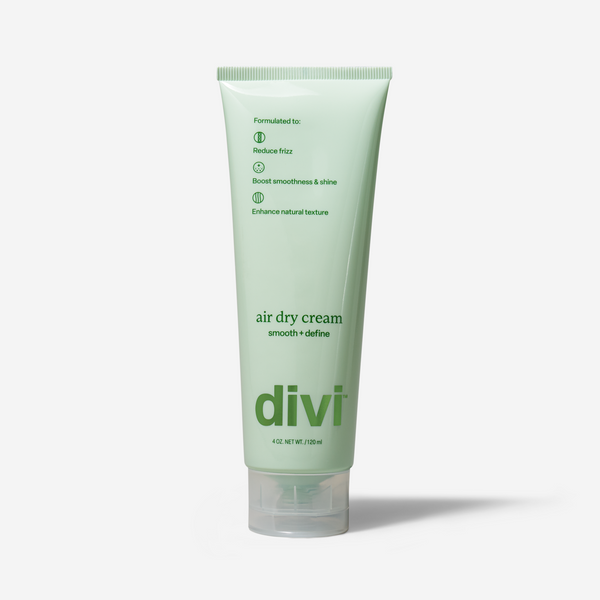
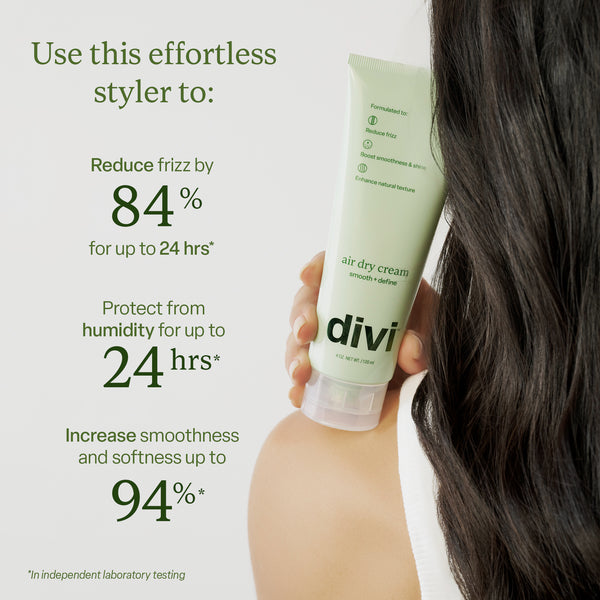

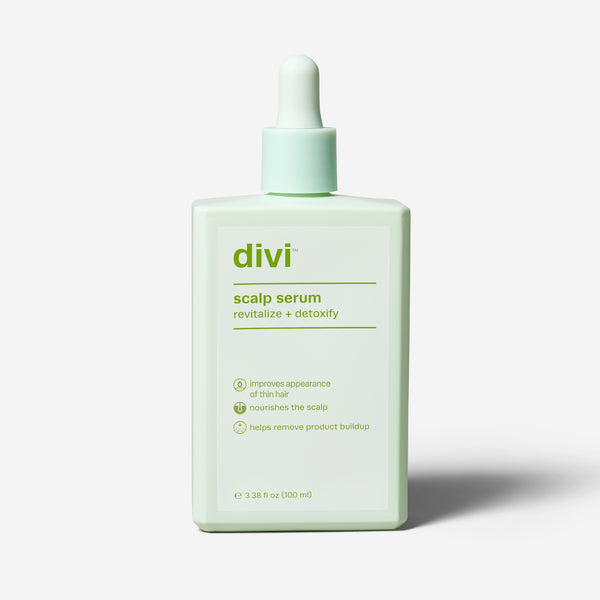

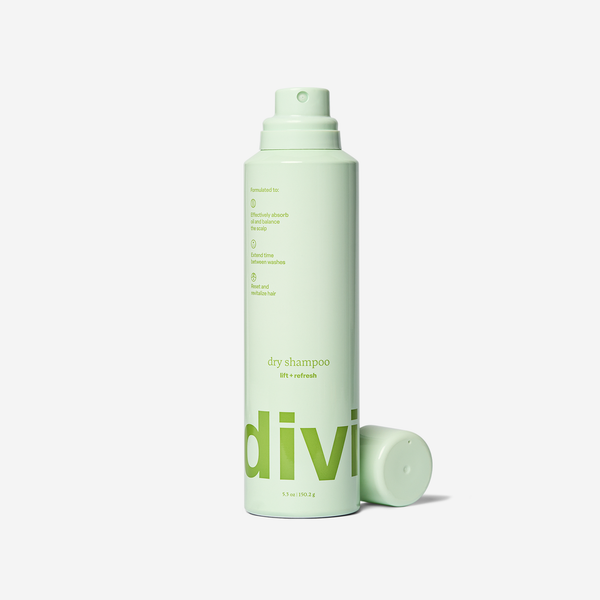

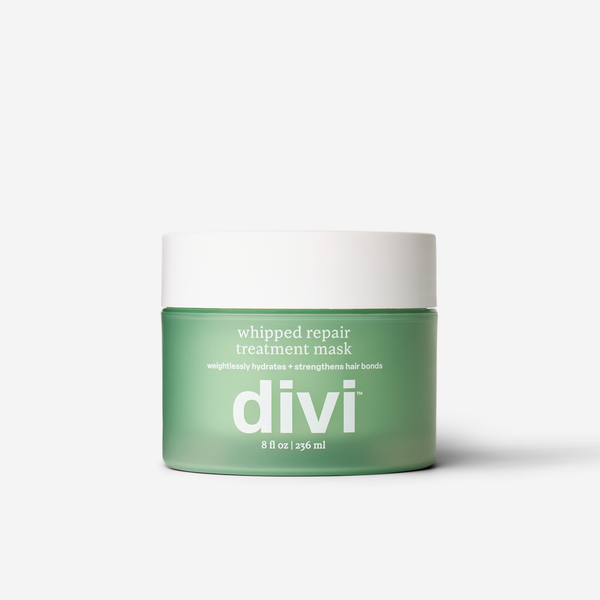
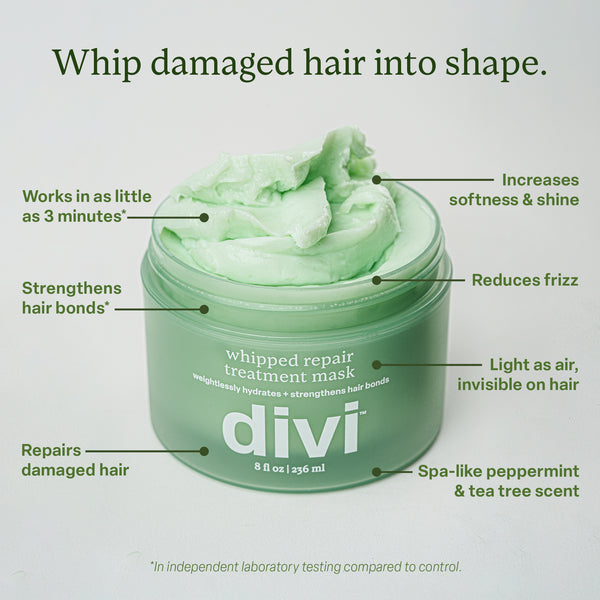
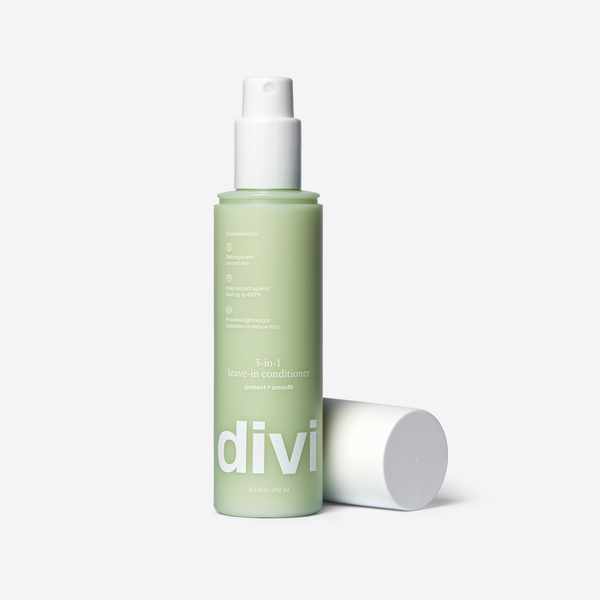

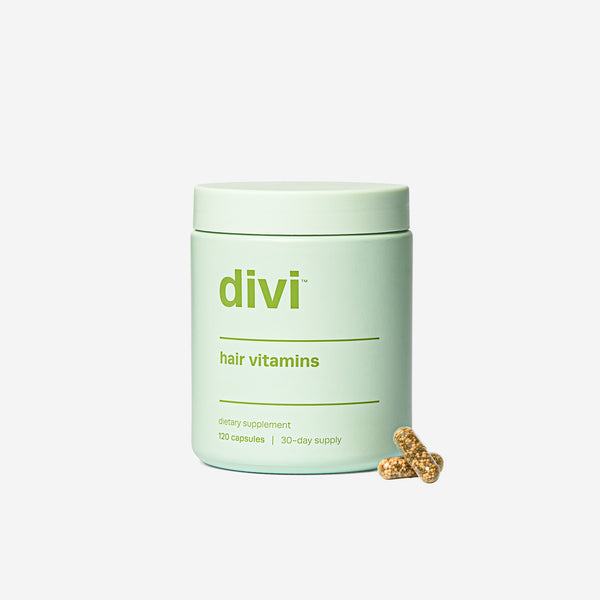
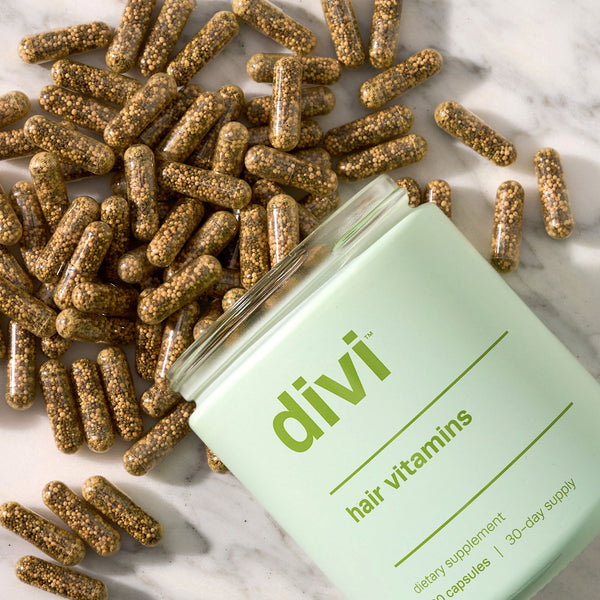
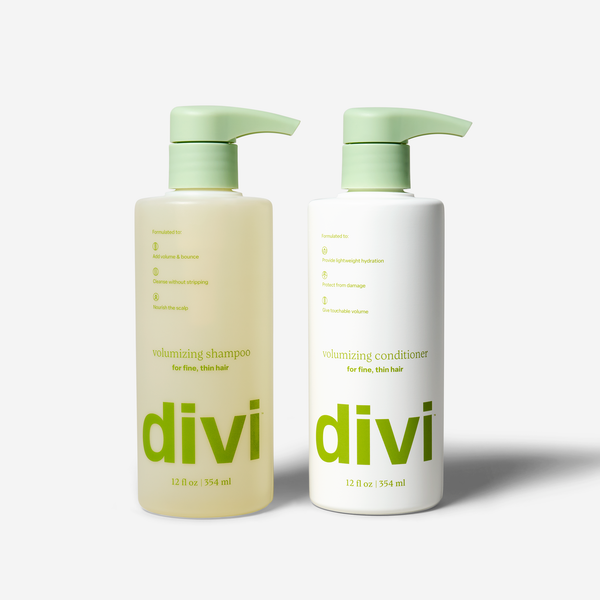





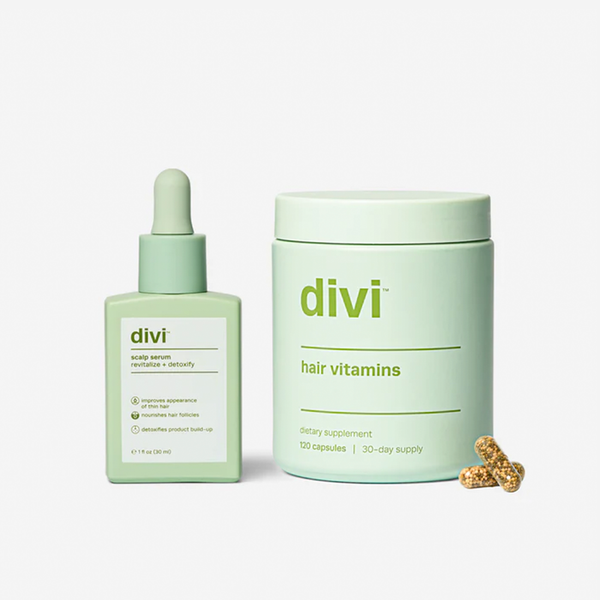
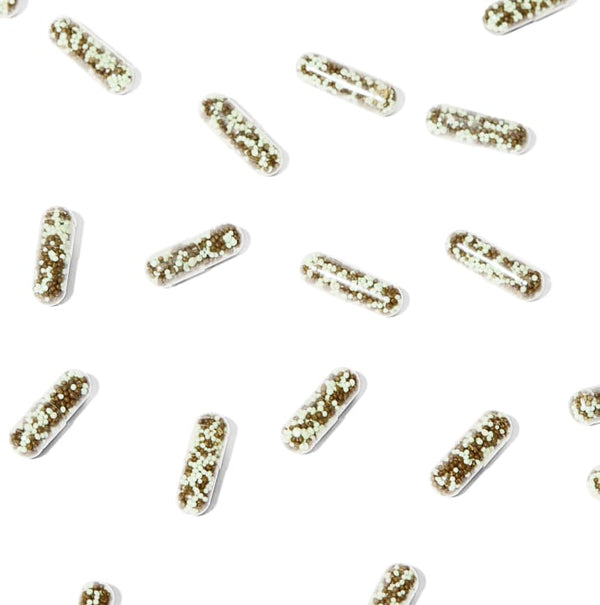
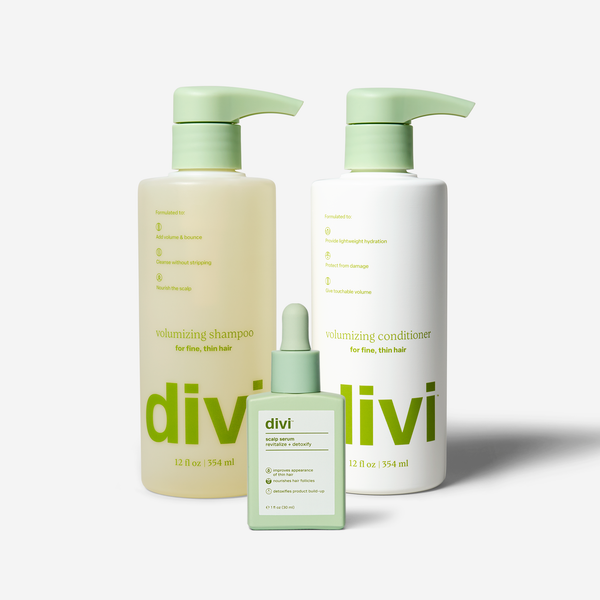
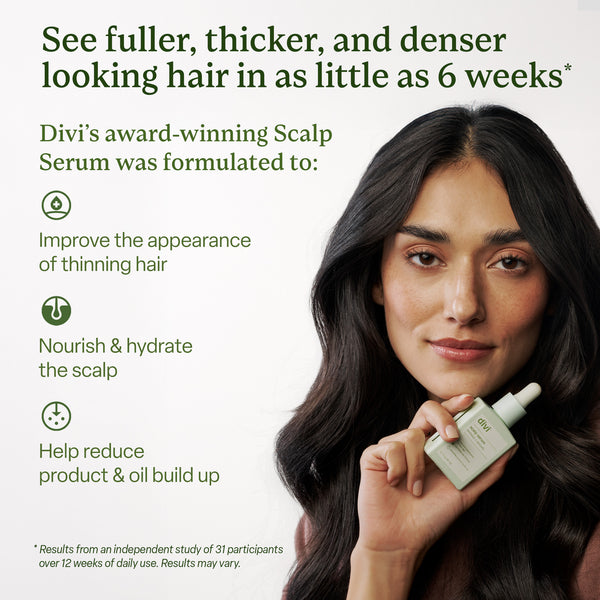


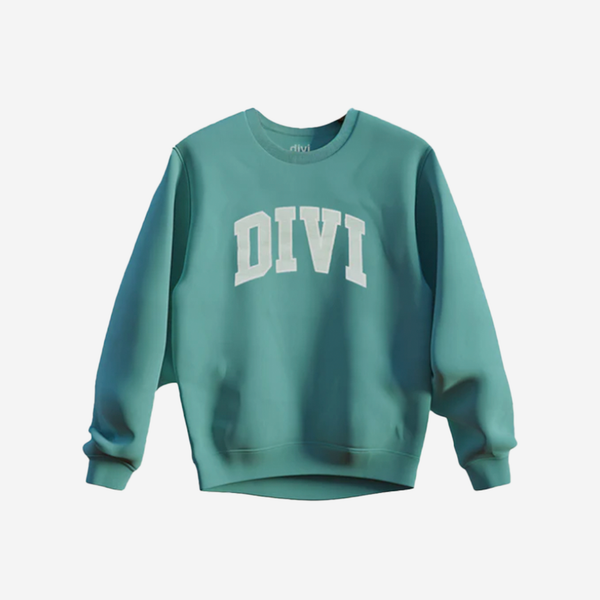
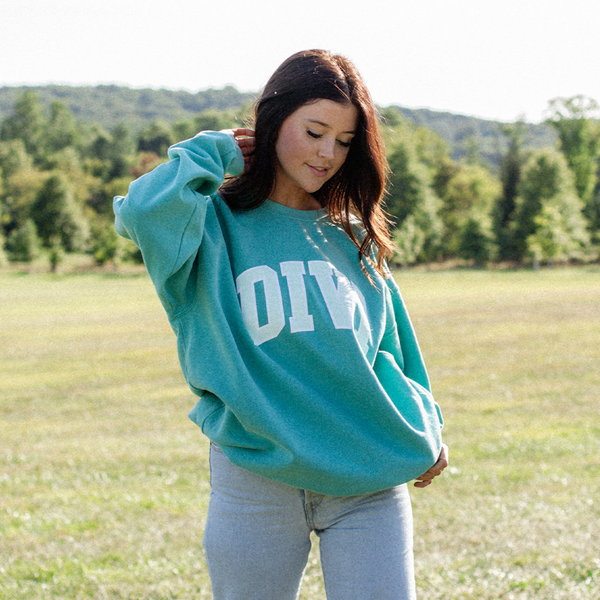







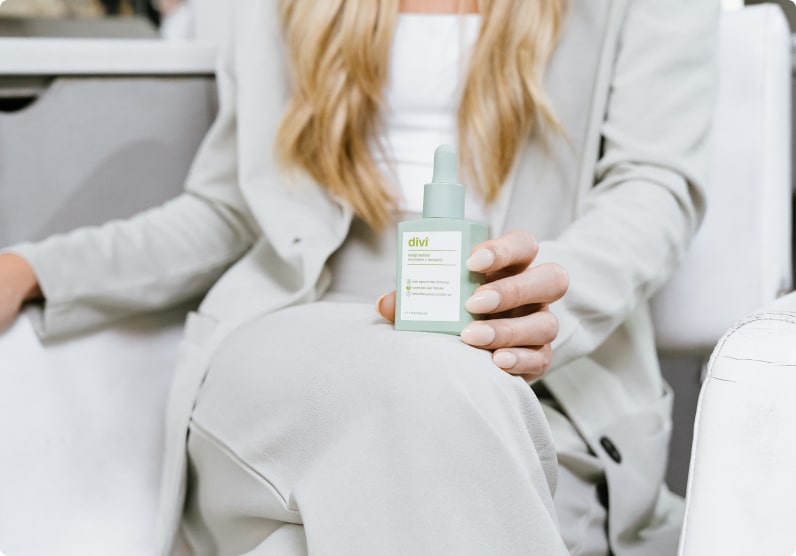






 30ml Scalp Serum
30ml Scalp Serum
 100ml Scalp Serum
100ml Scalp Serum
 Volumizing Shampoo
Volumizing Shampoo
 Hydrating Shampoo
Hydrating Shampoo
 Volumizing Conditioner
Volumizing Conditioner
 Hydrating Conditioner
Hydrating Conditioner
 3-in-1 Leave-In Conditioner
3-in-1 Leave-In Conditioner
 Best Sellers Bundle
Best Sellers Bundle
 Volumizing Starter Bundle
Volumizing Starter Bundle
 Hydrating Starter Bundle
Hydrating Starter Bundle
 The Healthy Hair Bundle
The Healthy Hair Bundle
 Hair Vitamins Trio
Hair Vitamins Trio
 Dry Shampoo
Dry Shampoo
 Hair Vitamins
Hair Vitamins
 Volumizing Shampoo & Conditioner
Volumizing Shampoo & Conditioner
 Travel-Sized Volume Duo
Travel-Sized Volume Duo
 Hydrating Shampoo & Conditioner
Hydrating Shampoo & Conditioner
 Travel-Sized Hydrating Duo
Travel-Sized Hydrating Duo
 Travel-Sized Dry Shampoo
Travel-Sized Dry Shampoo
 Travel-Sized Dry Shampoo Trio
Travel-Sized Dry Shampoo Trio
